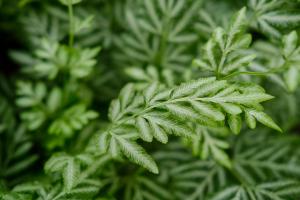Can We Water Plants at Night in Summer?
Summer is a time when plants need more water than usual in order to survive the hot, dry conditions. But when is the best time to water plants? Many people ask whether it's okay to water plants at night in summer. Let's take a closer look at this question and see what the experts have to say.
Watering Plants at Night: Pros and Cons
There are different opinions on whether it's a good idea to water plants at night in summer. Some people argue that watering in the evening or at night can save water, as less moisture is lost to evaporation than during the heat of the day. Others, however, believe that nighttime watering can create conditions that are ideal for fungal diseases to grow, especially if the leaves and soil stay damp for too long after watering.
One of the main advantages of watering plants at night is that the soil is usually cooler, which means that water is absorbed more gradually and efficiently. This can help to reduce water waste and ensure that plants get the hydration they need. Additionally, watering at night can be more convenient for those who work during the day or who have busy schedules, as they can attend to their plants during the evening hours.
On the other hand, nighttime watering can also be risky in some cases. If the temperatures are too low or if the soil already contains too much moisture, watering at night can cause more harm than good. This is especially true for plants that are prone to fungal diseases, as the humidity levels can stay high for long periods of time if the water doesn't dry out quickly. Moreover, watering at night can attract pests such as slugs, snails, and mosquitoes, which can damage plants and spread disease.
Best Practices for Watering Plants in Summer
So, what's the best way to water plants in summer? Here are some tips based on expert advice:
Water in the morning: Most experts recommend watering plants in the morning, when the temperatures are cooler and the sun is not at its peak. This allows the water to soak deep into the soil and reach the roots, without leaving the leaves wet for too long.
Avoid overwatering: It's important not to water plants too frequently, as this can lead to root rot and other problems. Instead, water deeply and thoroughly, and let the soil dry out somewhat between watering sessions.
Use the right amount of water: The amount of water a plant needs depends on its type, size, and environment. As a general rule, aim to water plants enough to moisten the top 6 inches of soil, but not so much that water is pooling on the surface or running off.
Consider the weather: Pay attention to the weather conditions when deciding when and how much to water your plants. If it's hot, sunny, and dry, you may need to water more often than if it's cool, cloudy, and humid.
Water from the base: Whenever possible, water plants from the base rather than from the top. This helps to avoid wetting the leaves and stems, which can encourage fungal growth and pests.
Conclusion
In summary, while it's possible to water plants at night in summer, it's not always the best approach. Depending on the plant, the climate, and other factors, watering in the evening or morning may be more appropriate. By following some basic watering guidelines and checking your plants regularly, you can help them thrive in even the hottest summer conditions.

 how many times do yo...
how many times do yo... how many planted tre...
how many planted tre... how many pine trees ...
how many pine trees ... how many pecan trees...
how many pecan trees... how many plants comp...
how many plants comp... how many plants can ...
how many plants can ... how many plants and ...
how many plants and ... how many pepper plan...
how many pepper plan...
































